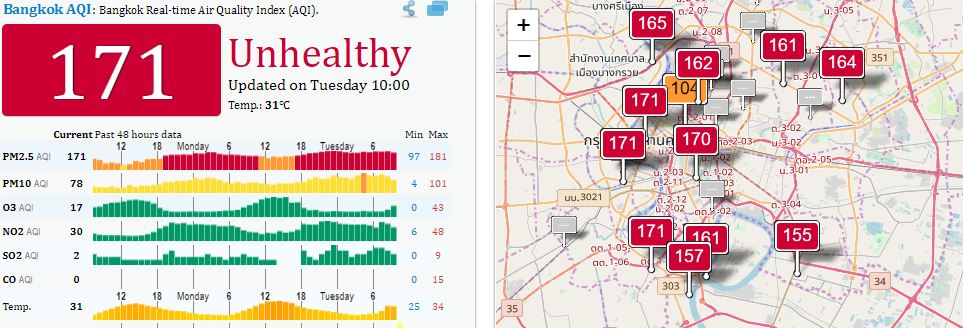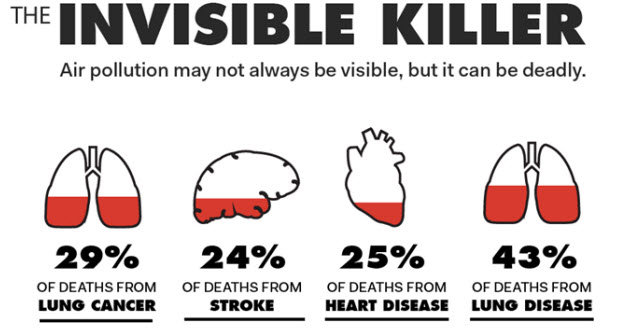Good morning, citizens. Coconuts Bangkok here, back at you with what we sincerely hope doesn’t become a daily smog update.
Desperate to find solutions for the capital’s dire air pollution crisis, the Thai government is preparing to deploy two aircrafts with artificial “rainmaking” technology in hopes that the resultant downpour will promote air quality.
The Department of Royal Rainmaking and Agricultural Aviation said that they are set to disperse chemicals into the air which, in theory, will stimulate cloud condensation and promote rain.
Meanwhile, Air Chief Marshal Chaiyapruek Tishyasarin of the Royal Thai Air Force ordered two BT-67 planes to be transported from Aviation Division 46 in Phitsanulok Province to Bangkok’s Don Muang Airport last night, reported Workpoint.
Rainmaking efforts will likely commence today and run through at least Saturday — depending on weather conditions.
Today, construction sites — including work on the BTS Skytrain — has been ordered to halt as a short-term solution to tackle the air pollution.
In the long-term, however Bangkok governor Aswin Kwanmuang said that the city must turn to electric trains and make a habit of more environmentally-friendly transportation.
On a more positive note, things are looking a little more optimistic today as scattered (real) rain dawns on Thailand’s capital, slightly improving air quality.

The latest update from Air Quality Index (AQI) indicates that Bangkok’s current situation has been downgraded from “unhealthy,” meaning “everyone may begin to experience health effects,” to “unhealthy for sensitive groups,” meaning “active children and adults, and people with respiratory disease, such as asthma, should limit prolonged outdoor exertion.”
However, airborne dust particle still remains at PM2.5 (particulate matter with a diameter of less than 2.5 micrometers), which far exceeds the safety limit.
As more people took the prime minister up on his advice and started utilizing facemasks, the government issued a price-gouging warning, saying that retailers who increase the prices of sanitary face masks will be considered breaking the law, a crime punishable with up to seven years in prison and/or a fine up to THB140,000 (about US$4,300), according to Workpoint.

Jokes aside, however, the air quality crisis is a major one.
According to World Health Organization (WHO), about 7 million die from air pollution per year — a number that beats the number of deaths from AIDS and malaria combined.
The organization estimates that 43 percent of all lung disease are cancer deaths are attributed to air pollution.

“People should not just wear face masks when they go outside during periods of bad air quality, but they should also create their own safe zones at their home and their workplace by installing air purifiers to clean the air indoor,” Rungsrit Kanjanavanit, a medical lecturer at Chiang Mai University, warned via Thaiger.
Related Story:
Bangkok’s air pollution cracks world’s worst top 10, threatening public health




